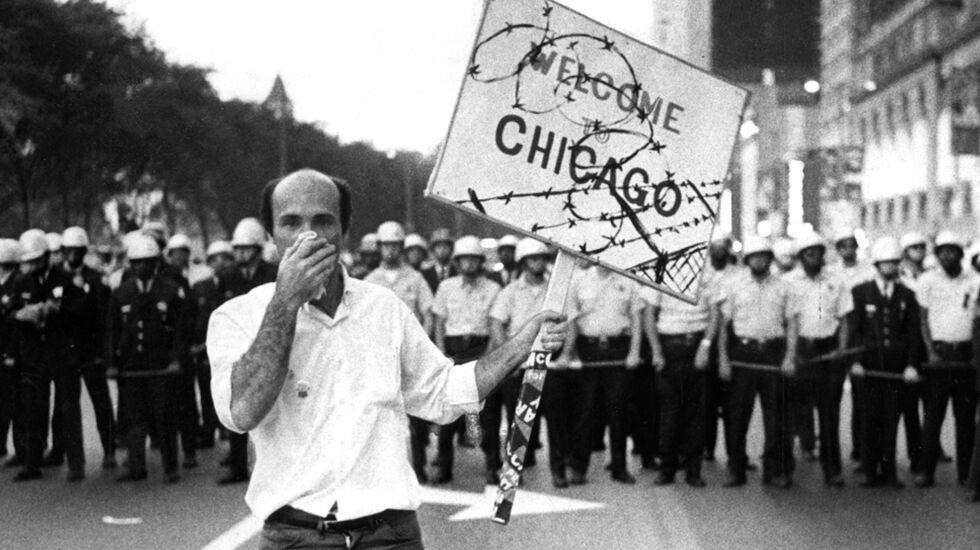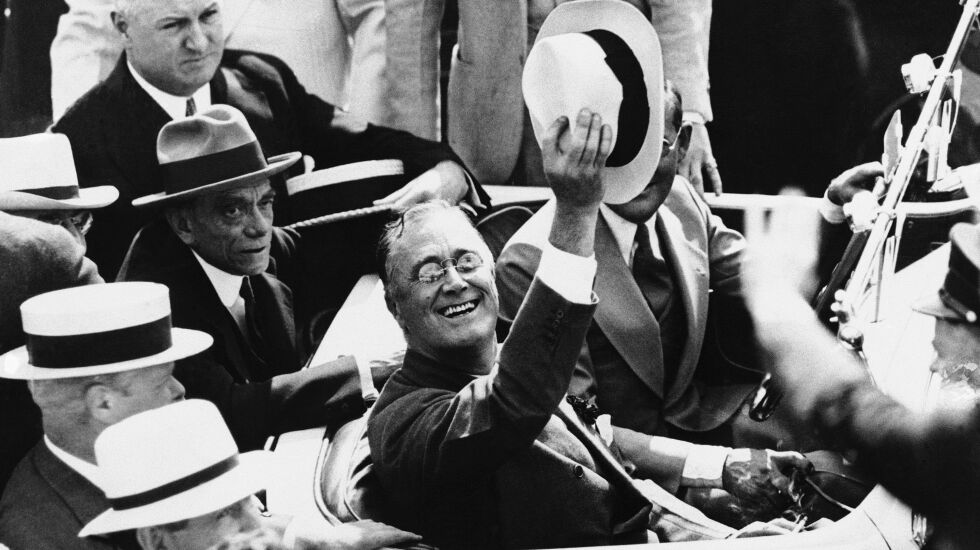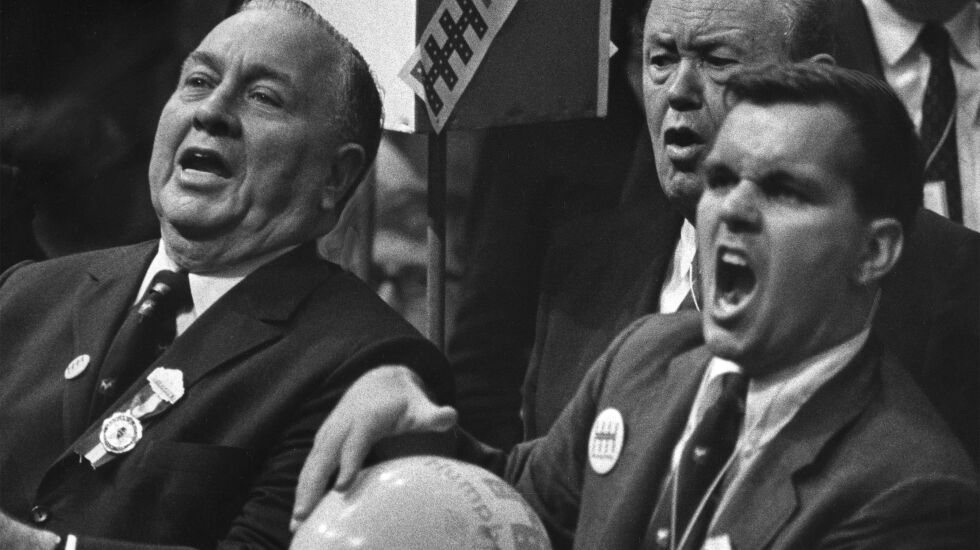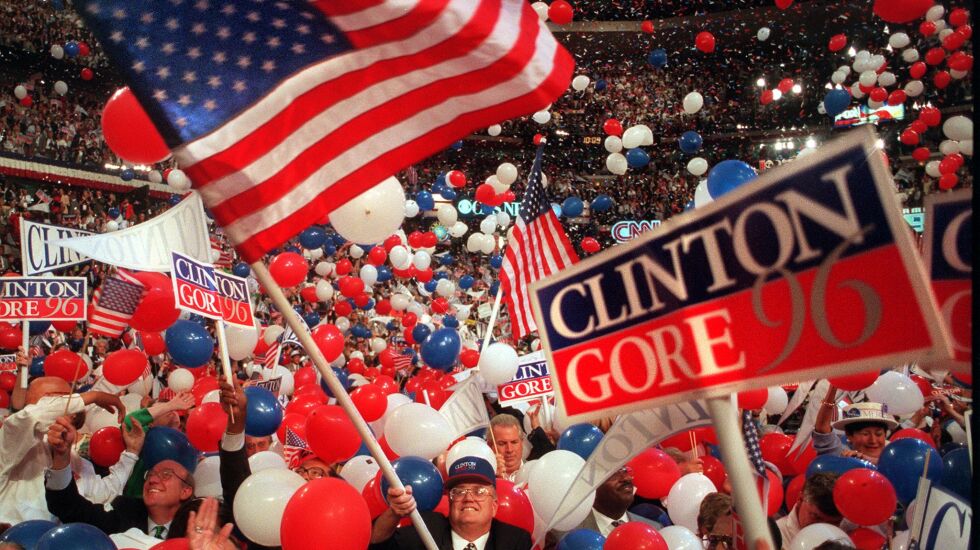
“Queer” used to be a slur. Then gay people took the word back, claiming it their own, as a sort of general term for the whole rainbow-hued subculture in all its freedom and fabulousness.
My first thought, learning that Chicago has snagged the 2024 Democratic National Convention, was that this is a good way for us to similarly reclaim both the adjective “Democratic” and the noun “Chicago” and make them a little less battered than they have been of late.
For years Republicans have been trying to turn “Democratic” into an all-purpose insult by chopping off the ending and pretending that the problems facing cities are there because they tend to be run by Democrats, when it’s the other way around: Cities tend to go Democratic because they have problems that need to be addressed, not chuckled over. Thus, Democrats.
This is a chance for Chicago, the poster child for urban woes, to marry itself once again to the party that for too long has seen its mantle of patriotism and efficiency stripped away, and by those bumbling shambolically toward treason.
First, a few ground rules. This isn’t our third Democratic National Convention, though that might be the default assumption. It’s our 12th, having been the host in 1864, 1884, 1892, 1896, 1932, 1940, 1944, 1952, 1956, and of course 1968 and 1996.

That 1932 convention is worth remembering not just because it led to the rare defeat of a sitting president. Franklin D. Roosevelt became the first candidate to show up at a convention to accept the nomination (the habit had been to sit on your front porch and feign indifference), and he did it by arriving in a shiny silver Ford Trimotor, making him the first presidential candidate to fly in an airplane, arriving to promise a “New Deal” for America.
Otherwise we have the twin bookends of 1968 and 1996 as guides. The first was a catastrophe that hardly needs explaining — masses of shaggy-haired protesters battling police. While the cops rightly get blame for that, the disaster was set in motion by City Hall. In trying to keep protests away from the site of the convention, the International Amphitheater, Richard J. Daley ended up pushing it onto Michigan Avenue. The 1968 convention might have transpired differently had Daley not spread the combustibles that the cops ignited.

The 1996 convention is credited with revitalizing the city, particularly the West Side, with Mayor Daley’s flower beds and wrought iron fences. Disruption was at a minimum, though that can be credited to it being held in the go-go ’90s. Kids were busy getting their MBAs, not worried about being shipped off to die in Vietnam.
As for the economic benefits, remember Chicago hosts about a dozen trade shows that have a larger economic impact on the city. It isn’t like this is another Sweets and Snacks Expo. It’s more a media group hug, and the media does tend to hyperventilate over this kind of thing.
“A huge economic and prestigious boon to the city,” Rick Pearson gushed Tuesday in the Tribune.
Maybe. It helps that Gov. J.B. Pritzker has suggested he’ll bankroll the thing. Though I seem to recall Richard M. Daley cooing all sorts of this-won’t-cost-you-a-cent promises in the heat of passion. Then, after he got what he wanted, the city ended up on the hook for many, many cents.
Plus, as the city that received the blackest eye ever from a political convention, we shouldn’t hold that prestige party just yet. After 1996, the city faced dozens of accusations of spying on political groups. And Google “The Chicago Five” for a cautionary tale of law enforcement run amok.

Bear in mind the boost is mostly illusory. Political conventions, like Olympics, are mostly money-losers, despite all the smoke and mirrors.
Remember: We’re a free society. A measure of protest is not only permitted, it’s beneficial, and Chicago needs to balance accommodating the convention and the protesters — who are also staying in hotels and buying lunches too, though not as lavishly, and also represent democracy in action.
As we’re finding out with NASCAR, there’s an enormous inconvenience factor — Broadway ticket sales plummeted when the Big Apple hosted the 2004 Republican Convention.
So something to be proud of, but also a new challenge facing a city that already has its share of challenges. It’s hard enough to make Chicago continue to be The City that Works. Now, a year from August, it has to be The City that Works During a Major Political Convention. At least we can take comfort in one indisputable fact: We’ve done it before.







